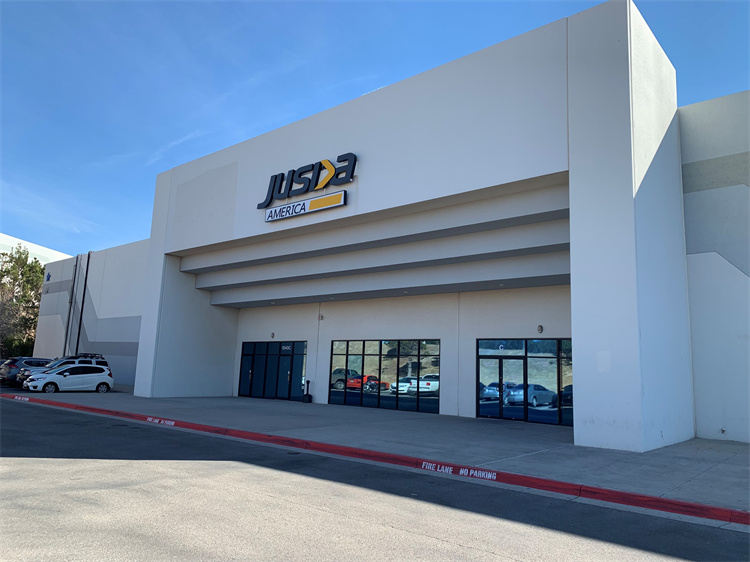Logistics Excellence: Inside JUSDA's Training Sessions Recap

Mastering logistics areas requires theoretical knowledge, practical skills, and industry-specific certifications. Recap of JUSDA's Recent Logistics Training Sessions provides specialized experience to overcome challenges in the industry due to globalization, e-commerce, and sustainability initiatives. This specialized training covers a wide range of functions including transportation, inventory management, warehousing, purchasing, and distribution. It enhances career advancement opportunities by providing skills for senior positions and leadership roles. Logistics training is essential for professional success in the rapidly evolving business landscape as it offers hands-on experience and practical insights into real-world scenarios.
Recap of JUSDA's Recent Logistics Training Sessions
Overview of the Sessions
Session Objectives
JUSDA's recent logistics training sessions aimed to equip participants with practical skills and industry-specific knowledge. The primary goal was to enhance their expertise in various logistics functions, including transportation, inventory management, warehousing, purchasing, and distribution. By focusing on these key areas, the sessions provided a comprehensive understanding of the challenges faced in the dynamic logistics landscape.
Duration and Schedule
The training sessions were meticulously planned to ensure maximum engagement and knowledge retention. With a duration spanning several days, participants had the opportunity to delve deep into each topic. The schedule was thoughtfully crafted to cover essential concepts while allowing for interactive discussions and hands-on learning experiences.
Training Methodologies
Interactive Workshops
One of the standout features of JUSDA's training approach is its emphasis on interactive workshops. These workshops fostered collaboration among participants, encouraging them to share insights and best practices. Through group activities and real-world simulations, attendees gained practical experience that they could immediately apply in their professional roles.
Case Studies
Incorporating real-life case studies into the training curriculum proved to be invaluable for participants. By analyzing past scenarios and industry examples, individuals were able to develop critical thinking skills and problem-solving abilities. The case studies provided a holistic view of logistics challenges and solutions, preparing attendees for diverse situations in their careers.
Key Outcomes
Skills Acquired
Participants emerged from the training sessions with a robust skill set tailored to meet industry demands. They honed their abilities in strategic planning, decision-making, risk management, and operational efficiency. By mastering these skills, individuals are better equipped to navigate complex logistics scenarios with confidence and precision.
Participant Achievements
The success stories resulting from JUSDA's training sessions are a testament to their effectiveness. Participants reported significant improvements in their job performance, demonstrating enhanced productivity and innovative thinking. Many attendees received accolades for their contributions to process optimization and cost savings within their organizations.
Key Training Topics

Inventory Management
Best Practices
Implementing Artificial intelligence (AI) solutions can streamline inventory management processes by automating tasks such as route planning and warehouse picking. This technology enhances operational efficiency and accuracy, leading to cost savings and improved customer satisfaction.
Utilizing a professional supply chain management system is essential for optimizing inventory control. By ensuring timely arrivals of goods and minimizing stockouts, businesses can maintain seamless operations and meet customer demands effectively.
Optimizing end-to-end processes in inventory management is crucial for enhancing business performance. Fine-tuning operations across warehouses, inventory, and delivery processes leads to increased productivity and reduced operational costs.
Tools and Technologies
Warehouse managers rely on warehouse activity monitoring systems to track inventory levels, monitor stock movements, and optimize storage space. These tools provide real-time insights into warehouse operations, enabling proactive decision-making to prevent bottlenecks or stock shortages.
Leveraging data analytics software allows businesses to forecast demand accurately, optimize stocking levels, and reduce excess inventory. By analyzing historical data trends, companies can make informed decisions regarding procurement, storage, and distribution strategies.
Implementing barcode scanning technology enhances inventory visibility and tracking accuracy. By scanning barcodes at various stages of the supply chain, organizations can maintain precise records of stock movements and minimize errors in order fulfillment processes.
Supply Chain Management
Strategies
Developing robust supplier relationships is a key strategy in effective supply chain management. Collaborating closely with suppliers ensures timely deliveries, quality assurance, and cost-effective procurement practices that benefit all parties involved.
Implementing lean principles in supply chain operations helps eliminate waste, improve process efficiency, and enhance overall productivity. By optimizing workflows and reducing lead times, businesses can respond swiftly to market demands while maintaining high-quality standards.
Embracing sustainable practices such as eco-friendly packaging materials or energy-efficient transportation options aligns with modern consumer preferences for environmentally conscious products. Sustainable supply chain strategies not only reduce carbon footprints but also contribute to brand reputation and customer loyalty.
Real-World Applications
The adoption of blockchain technology in supply chains offers transparent traceability of goods from origin to destination. Blockchain ensures data integrity, security against fraud or tampering, and enhanced trust among stakeholders throughout the supply network.
Incorporating just-in-time (JIT) inventory management practices minimizes excess stock holding costs while ensuring on-time production schedules. JIT methodologies streamline operations by delivering components precisely when needed for manufacturing processes.
Outsourcing non-core functions like warehousing or transportation services to third-party logistics providers optimizes supply chain resources. By focusing on core competencies while leveraging external expertise for specialized tasks, businesses achieve cost efficiencies without compromising service quality.
Customer Service in Logistics
Importance
Prioritizing exceptional customer service in logistics is paramount for building long-term relationships with clients. Prompt responses to inquiries, accurate order processing, and on-time deliveries create positive experiences that foster customer loyalty.
Offering personalized solutions tailored to individual customer needs demonstrates a commitment to client satisfaction. Customized services such as express shipping options or flexible delivery schedules cater to diverse preferences and enhance overall service quality.
Resolving customer issues promptly through efficient communication channels builds trust and credibility within the logistics industry. Addressing concerns proactively shows dedication to customer care while reinforcing brand reputation as a reliable service provider.
Techniques
Implementing a customer relationship management (CRM) system centralizes client information for streamlined communication and personalized interactions. CRM platforms enable logistics companies to track customer preferences, manage feedback effectively, and deliver targeted marketing campaigns.
Providing multi-channel support through online chat services or social media platforms enhances accessibility for customers seeking assistance or information. Real-time engagement across various channels ensures quick resolution of queries while maintaining consistent service standards.
Conducting regular training sessions for frontline staff on effective communication skills equips employees with the tools necessary to handle diverse customer interactions professionally. Training programs focus on active listening techniques, conflict resolution strategies, and empathy-building exercises.
Participant Feedback

Positive Experiences
Testimonials
Anonymous Participant:
"All the instructors were wonderful. Everybody made me feel at ease. Thank you for a great learning experience."
Anonymous Participant:
"The instructors were excellent - it was very educational for me. They really take the time out for everyone, and explain everything in detail. Made learning fun. Thank you for this experience."
Anonymous Participant:
"Loved every second of it! The instructors were very professional, knowledgeable, and delightful!"
Success Stories
Mainfreight:
"In addition to their comprehensive training programs, Mainfreight has made significant investments in the wellbeing of their team members. This commitment is evident through initiatives such as their Employee Assistance Program, which offers free and confidential on-site counselling services. They also provide yearly flu vaccinations, an in-house kitchen that provides daily nutritious meals, and even offer small gestures like distributing buckets of apples to express appreciation for their team members' hard work."
Reflecting on the insightful testimonials from participants like Mainfreight, it's evident that JUSDA's commitment to excellence in logistics training is unwavering.
Embracing future developments, JUSDA remains dedicated to enhancing industry skills and knowledge through upcoming specialized training sessions.
Join JUSDA on this journey towards professional growth and expertise in logistics management for a rewarding career path.
See Also
Revolutionizing Efficiency: JUSDA's Logistics Optimization Unveiled
Sustainable Efficiency: JUSDA's Logistics Expansion Revealed
Navigating Success: Jusda's Supply Chain Resilience Journey
Unveiling JUSDA's Cutting-Edge Supply Chain Solutions
Unleashing Efficiency: Insider Tips for Logistics Cost Savings
